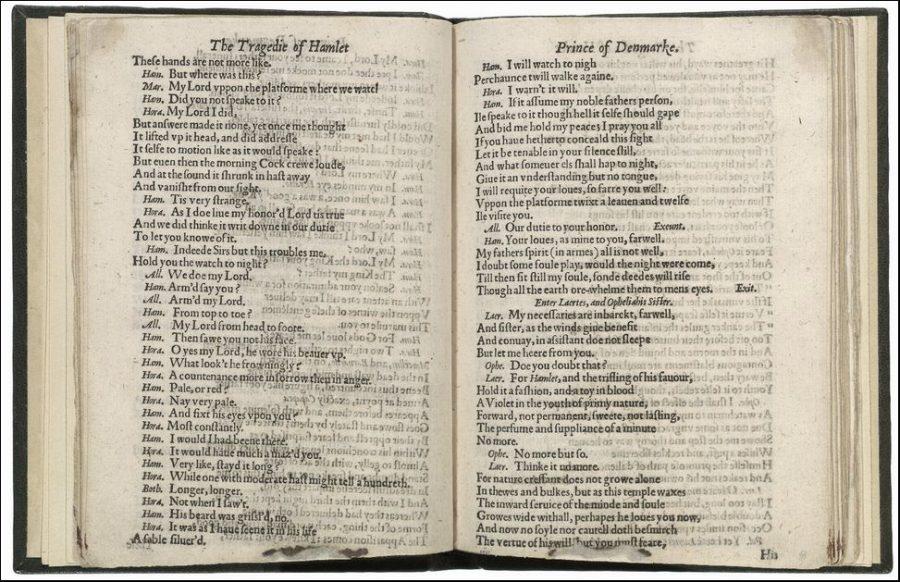An Examination of the Shakespearean Hero
In his plays, Shakespeare explores the flaws of his characters , and how those flaws lead to their demise. In spinning such psychological narratives, Shakespeare shows us what qualities he considers to be crucial for a true hero in his famous play “Hamlet”.

Shakespeare’s definition of a hero can be seen through the three parallel stories of Hamlet, Laertes, and Fortinbras. These three young men are similar in many ways. Their fathers have died, they are quite popular with the general public, and all three are out for revenge. They regard this as matters of honor and duty, but the ways in which they react reflect their flaws and ultimately decide their fate. Hamlet and Laertes each has a hamartia: Hamlet indecision, Laertes impulsiveness.
Hamlet represents indecision. Upon hearing the true story of how his uncle Claudius murdered his father, married his mother and ascended the throne, Hamlet is sidetracked from his purpose by the betrayal of his loved ones. When Hamlet confronts his mother in her closet; while he rebukes her harshly, he is in fact still trying to save her. He pleads with her to cease having sex with Claudius so that she may still retain her virtue and receive salvation. He also attempts to protect Ophelia by telling her to go to a nunnery, feigning insanity. Hamlet continually overthinks and rationalizes the delay in carrying out his revenge. It is not until a turn of fate that Hamlet takes speedy advantage of the situation and completes his duty, but he dies in the process.
Laertes is the opposite extreme, being too impulsive, even to the point of rashness and gullibility. After Claudius tells him that Hamlet killed his father, Laertes immediately vows revenge and expresses his wish to kill Hamlet in the dirtiest way possible: in the church. Ironically, Laertes says that he’ll “not be juggled with” when he first barges into the court, but he is so cleverly manipulated by Claudius that he says later on, “I will be ruled,/ The rather if you could devise it so/ That I might be the organ.” While Hamlet broods, Laertes storms back from France with a huge crowd at his back and demands justice. However, Laertes’s method is not any better than Hamlet’s, as he goes to the opposite extremity, and they end up dying at each other hands in the same way.
Fortinbras treads the middle path. He also deals with his father’s violent death, just as Hamlet and Laertes do. In particular, both Hamlet’s and Laertes’s uncles have taken their nephews’ thrones. In contrast, while Hamlet is contemplating life and death and complaining about how Claudius has “popped in between the election and [his] hopes,” Fortinbras has been gathering his troops to regain what was once his territory, in the name of honor. Hamlet compares himself to Fortinbras when he hears of the prince’s march. He muses on how Fortinbras and his men are risking death over an inconsequential piece of land for honor. He says that he, who has plenty of cause for such violence, does nothing while Fortinbras takes action for a little matter of honor. This is the reason why Fortinbras succeeds in the end; he balances prudence with speed.
Throughout “Hamlet”, Shakespeare develops the fascinating parallel stories of three young men, (Hamlet, Laertes and Fortinbras), which reflect Shakespeare’s definition of heroism. Hamlet and Laertes walk the opposite extremes of indecision and impulsiveness. The defining quality of Fortinbras that ultimately determines his success is his balance between prudence and speed. This trait is what defines a Shakespearean hero.







